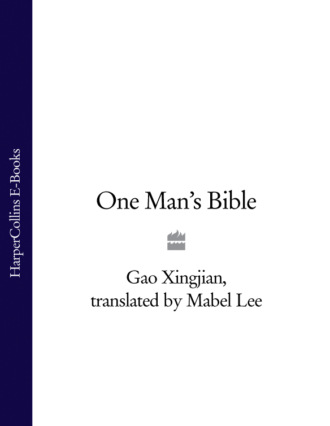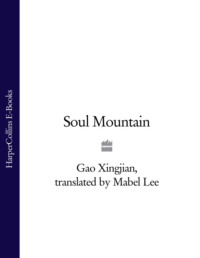
Полная версия
One Man’s Bible
He attended a fiction recital, at which a teacher read a work by the Russian writer Vladimir Korolenko. The story took place on a snow-swept night, and the first-person narrator was driving a jeep on a mountain road when the brakes failed. He saw a light on the cliff and struggled up to the house where there was an old woman. In the middle of the night, the howling wind made it impossible for the narrator to fall asleep and, listening to the wind, he seemed to hear someone sighing from time to time. Thinking he might as well get up, he found the old woman sitting by the solitary lamp in the room, facing the banging door. The narrator asked the woman why she hadn’t gone to bed. Was she waiting for someone? She said she was waiting for her son. The narrator indicated that he could wait instead. It was then that she said her son was dead and that it was she who had pushed him down the mountain. The narrator naturally couldn’t help questioning her about it. The old woman gave a long sigh and said her son deserted during the war and came back to the village, but she did not allow her deserter son into the house.
The story somehow moved him deeply and it made him feel that the world of adults was incomprehensible. Now it was he who had deserted. The thoughts that had circulated in his mind from childhood had determined that he would later be declared the enemy. However, he would never again return to the embrace of the homeland that had nurtured him.
He also recalled that the first time he thought hard about something was probably when he was eight, because of where it had taken place; it was soon after he had written his first diary entry. He was leaning out the window of his little room upstairs when he dropped the rubber ball he was holding. It bounced a few times, then rolled into the grass under an oleander bush. He begged his young uncle who was reading below in the courtyard to throw the ball back to him.
His young uncle said, “Lazy bones, you threw it down, so come down and pick it up yourself.”
He said his mother told him he was not to come downstairs to play until he had finished writing his first diary entry.
His young uncle said, “But what if I pick it up and you toss it down again?”
He said he hadn’t tossed it down, that the ball had dropped by itself. His young uncle reluctantly threw the ball into his window upstairs. Still leaning out the window, he went on to ask his young uncle, “The ball dropped down, but why didn’t it bounce back? If it bounced back the distance it dropped, I wouldn’t have had to trouble you to get it.”
The young uncle said, “It’s all very well for you to say so, but this has to do with physics.”
He then asked, “What’s physics?”
“It has to do with a basic theory and you wouldn’t be able to understand.”
His young uncle at the time was a middle-school student and greatly inspired his respect, especially with his talk of physics and some basic theory. He remembered these words and terms and thought that while the world looked ordinary, everything in fact was profound and unfathomable.
Afterward, his mother bought him a set of children’s books, Ten Thousand Whys. He read through every volume but nothing impressed him, except for the question about the beginning of the world, which has always remained in his mind.
Remote childhood is hazy, but some bright spots float up in memories. When you pick up one end of a thread, memories that have been submerged by time gradually appear and, like a net emerging from the water, they are interconnected and infinite. The more you pull, the more threads seem to appear and disappear. Now that you have picked up one end and again pulled up a whole mass of happenings from different times, you can’t start anywhere, can’t find a thread to follow. It’s impossible to sort them to put them into some sort of order. Human life is a net, you want to undo it a knot at a time, but only succeed in creating a tangled mess. Life is a muddled account that you can’t work out.
Конец ознакомительного фрагмента.
Текст предоставлен ООО «ЛитРес».
Прочитайте эту книгу целиком, купив полную легальную версию на ЛитРес.
Безопасно оплатить книгу можно банковской картой Visa, MasterCard, Maestro, со счета мобильного телефона, с платежного терминала, в салоне МТС или Связной, через PayPal, WebMoney, Яндекс.Деньги, QIWI Кошелек, бонусными картами или другим удобным Вам способом.


